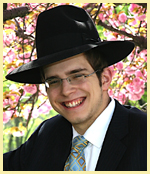Eretz Yisroel’s Wisdom
This week’s Parsha reports the episode in which spies are sent to check out the Land of Israel to see if the Jewish People will be able to conquer Eretz Yisroel. When the spies return, they relay a slanderous report about Eretz Yisroel. Moshe & Aharon fall on their faces, whereas Yehoshua and Kalev, whom the Pasuk emphasizes were among the aforementioned spies, tore their clothes.
The Imrei Shefer asks, that we already know that Yehoshua and Kalev were in the group that scouted Eretz Yisroel. Why does the Torah need to repeat that they went into Eretz Yisroel?
The Imrei Shefer offers the following interpretation: Moshe and Aharon falling on their faces was a form of prayer. They thought that there was still hope to daven and nullify the decree. Whereas Yehoshua and Kalev tore their clothes-a form of mourning- because they knew that the decree was already sealed and that davening wouldn’t help anymore. But that raises a question. Moshe and Aharon were greater than Yehoshua and Kalev, so how was it that Yehoshua and Kalev understood something that Moshe and Aharon did not yet understand?
Due to this question, the Pasuk reiterates that Yehoshua and Kalev had gone into Eretz Yisroel, which was something that Moshe and Aharon did not merit to do. Being in Eretz Yisroel enables a person to achieve greater heights in wisdom and holiness. As the Gemara in Kesubos says that one Yid who goes up from Bavel to learn in Eretz Yisroel is as great as two who remain in Bavel. [We also see this in our times, many of the Gedolei Hador live in Eretz Yisroel.] So that’s how Yehoshua and Kalev were able to understand something that even Moshe and Aharon didn’t yet understand!
Although we have many enemies who seek our demise, and especially of all those dwelling in Eretz Yisroel, let us strengthen ourselves to not fear learning and growing in Eretz Yisroel. Perhaps that will be [part of] our share in rectifying the sin of the Miraglim. May the day come soon when we will all be in Eretz Yisroel, appreciating the beauty of Torah in complete serenity, and basking in the light of the Divine Presence.



